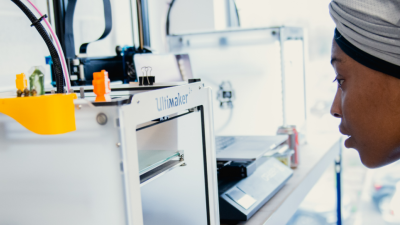
Building resilience from devastating wildfires
A collection of works exploring a safer world, this series of images from the frontline of one of South Africa's largest fires captures the destruction caused to informal settlements.
This page is approximately a 3 minute read
This page was published on

The Making Spaces project, a Lloyd’s Register Foundation funded research and development project encouraging young people into engineering and safety based careers, has launched a new report ‘Developing equitable practice with youth in makerspaces’ which summarises and shares ideas emerging from the project, to help practitioners support the engagement of young people in science, technology, engineering and mathematics (STEM).
Makerspaces are informal multipurpose sites designed for collaborative hands-on learning and creative production. These spaces can provide ideal settings for encouraging participation in STEM, including for low income and under-represented communities. By empowering these communities to take up engineering related disciplines and helping redress inequalities in STEM education, the Making Spaces project is ensuring that everyone has an opportunity to become future safety experts.
The report details progress on the first phase of the project, including findings from observations, interviews with participants and practitioner workshop outcomes. Six key ideas were identified as part of this process, intended to support critical reflection among practitioners when developing makerspace programmes.
1. Develop a social justice mindset and culture
2. Create safe, welcoming, sustainable and inclusive spaces
3. Work in participatory ways with young people
4. Foster caring pedagogies and relationships
5. Support young people’s agency and social action through making
6. Build capital, skills and progression
The project found that makerspaces whose practice is grounded in these six key ideas can make a big difference to the lives of young people from under-served communities. As one participating young person explained when reflecting on makerspaces: "My career has gone from [working in a cafe] for the rest of my life to being a QA tester or a data scientist - whatever I choose.”
The Making Spaces project has summarised the findings through easy to use visual resources for practitioners, and provided recommendations for funders and young people interested in makerspaces based on the key ideas throughout the report.
Making Spaces will be advancing the first phase of their project by expanding globally, exploring and understanding equitable practice in international makerspaces. This report has already been translated into Arabic, Slovenian and Nepali for new international partners, with a view to develop more makerspaces networks in the US, Middle East, Asia and Europe.
Download the full report, executive summary and translations on the Making Spaces project website and follow how the project progresses on Twitter and Instagram.